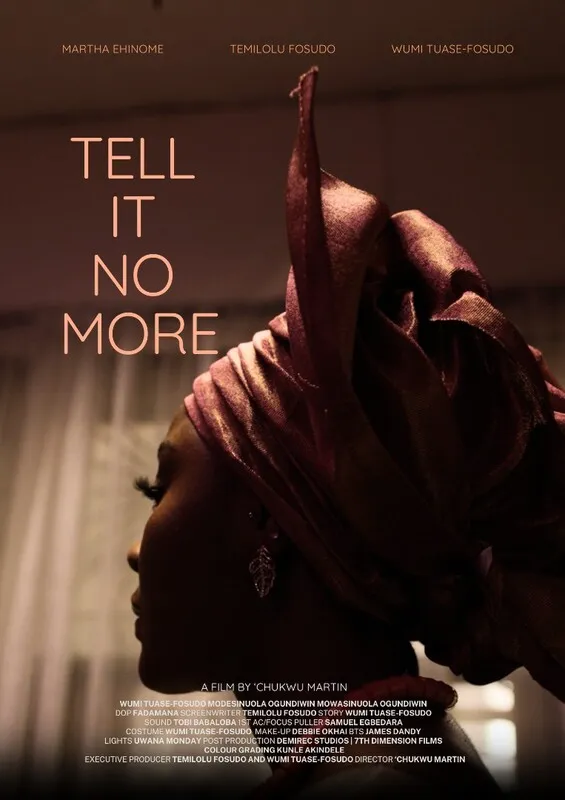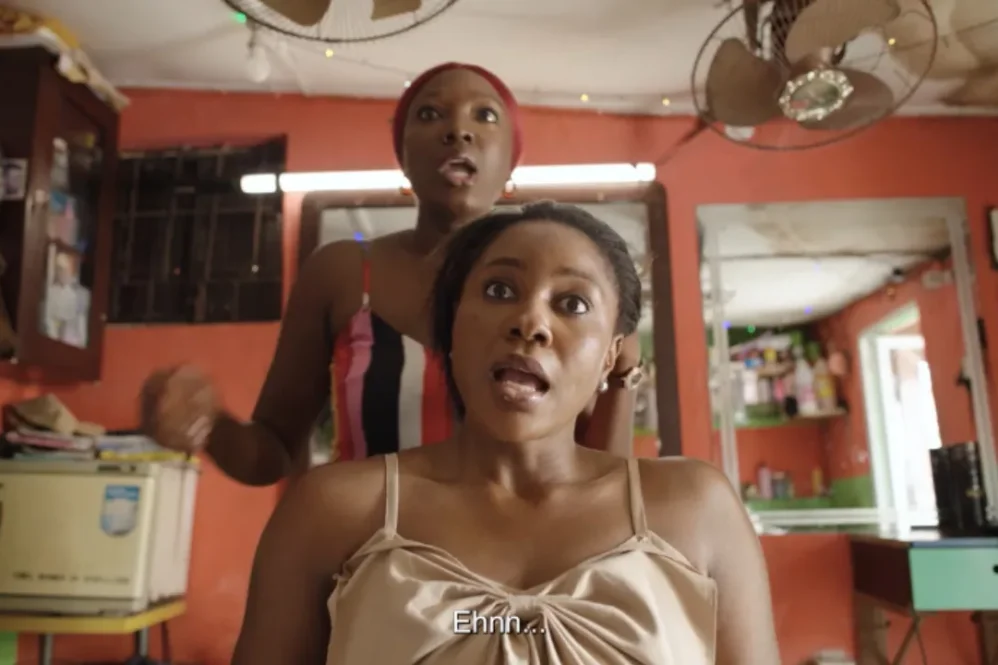Film Mischief: Stories, ideas and instructions passed down from generations continue to shape our present and future. We often don’t know their origins—my mother told me and her mother told her so you must hear it too—but they dictate our lives. In Chukwu Martin’s Tell It No More he brings one of those instructions about marriage to the light but his wattage is often not enough.
(Click to Follow the What Kept Me Up channel on WhatsApp)

The fourteen-minute short captures a moment in Darasimi’s marriage where she discovers a secret that rocks her marital beliefs. It begins with a recognisable wedding scene, Darasimi (Martha Ehinome) sits with her face framed by a gele being pulled around her head while her offscreen mother gives her instructions for her marriage. It’s the usual ones you’ll expect from a Nigerian mother to her daughter, “be patient with your husband” and other tales before we are taken to the future where a pregnant Darasimi asks her distracted husband to come drive her to the salon. He asks her to drive herself, eyes still stuck on the football match he’s watching. A marriage not in complete disarray but settled in a domestic inertia.
The best scene in the film—and its core—is when she’s conversing with the hairdresser. We’re moved between the mirror and their faces, the direction keeping up with the conversation. Wumi Tuase-Fosudo as Itunu the vivacious hairdresser draws out an innocent but curious performance from Martha’s Darasimi. They exchange stories and opinions on marriage, Darasimi set in stone on the importance of a wife’s patience and Itunu averse to marriage itself —“marriage no dey favour women,” she says. There is no middle ground, but there’s also no conflict, the conversation never dulls and is funny, pushing the story to the expected twist at the end.
The film closes over a frame of Martha’s face in tears, a strong performance of realisation and generations of marital beliefs broken. The breaking of these beliefs is what you wish some more time was spent on, we never know how Darasimi’s internal breakdown manifests outside her husband. Maybe it was limited by time but it’s what keeps this film from becoming something more.
This sense of something left unexplored speaks to the broader pattern in Nigerian short films. There is a distrust in letting audiences sit with films, a want (rather than a need) for an OMG moment at the end, that sacrifices the story’s core. Other times, our short films are bland and boring, solely built around a shock value curveball at the end. With Tell It No More, we have a short film that leans more into the former category. At least, it does not sacrifice too much of its core at the altar of plot twists.
Tell it No More screened at The Annual Film Mischief 2025.
Become a patron: To support our in-depth and critical coverage—become a Patron today!
Join the conversation: Share your thoughts in the comments section or on our social media accounts.
Side Musings
- The last words Darasimi says feel like a reference to an iconic How To Get Away With Murder line reading.
- The salon she’s getting her hair done in feels very Nigerian. The stuffiness and the numerous posters of hairstyles on the walls.



